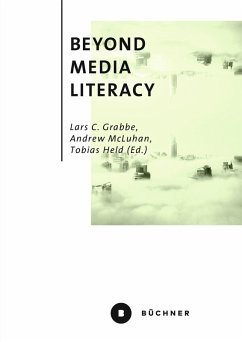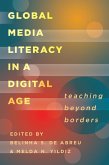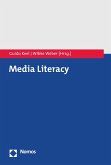The interplay of physical reality and media environments is getting enhanced by new technological innovations. We are living in the age of digital aesthetics and there is a need for individual, cultural or social forms and variations of media literacy. This book seeks the limits of media literacies, and to go beyond them. »Beyond Media Literacy« contributes to the wide range of the media literacy discourse with approaches in modern media theory, philosophy, art and film theory, computer graphics as well as the complex range of modern aesthetics. This volume monitors and discusses the relation of media and literacy in the context of media as environments with effects on psyche and society.
Dieser Download kann aus rechtlichen Gründen nur mit Rechnungsadresse in A, B, BG, CY, CZ, D, DK, EW, E, FIN, F, GR, H, IRL, I, LT, L, LR, M, NL, PL, P, R, S, SLO, SK ausgeliefert werden.
Hinweis: Dieser Artikel kann nur an eine deutsche Lieferadresse ausgeliefert werden.









